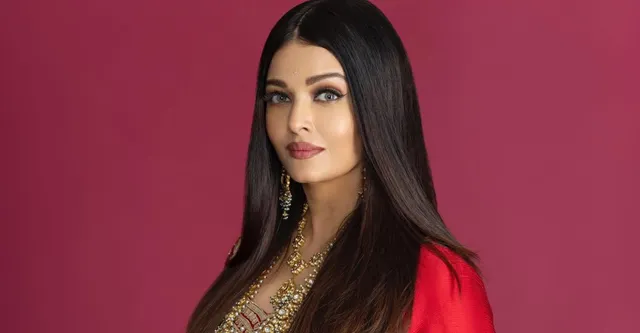- By Sidhi Agarwall
- Tue, 09 Sep 2025 01:46 PM (IST)
- Source:JND
Bollywood actress Aishwarya Rai Bachchan has approached the Delhi High Court seeking protection of her personality rights, after discovering that rogue websites were using her name, image, and identity without permission. The petition, filed against aishwaryaworld.com and other infringers, argues that this kind of misuse is part of a larger trend of online fraud, where celebrity identities are exploited for financial gain. According to Aishwarya’s plea, these websites have been creating a false impression that they are connected to her, publishing her photos, selling merchandise, and even misusing her image in fraudulent schemes.
Meanwhile, the matter came before Justice Tejas Karia. Although the hearing was adjourned until January, the court is expected to grant interim injunctions to protect her rights in the meantime. Justice Karia stated, “There are only 151 URLs which will form part of the order as far as you are concerned… We will pass orders against each of defendants because prayers are broad. But we will grant injunctions separately.” This means that orders are likely to be issued blocking access to infringing websites and removing illegal content.
View this post on Instagram
What Does Aishwarya Rai Bachchan’s Petition Seeks?
Aishwarya Rai Bachchan’s legal team has asked the court for several remedies, including, blocking aishwaryaworld.com and other rogue websites, removal of infringing URLs, directions to intermediaries such as Google and YouTube to take down unlawful content and permission to extend the order to ‘John Doe’ defendants for unknown parties who may host or spread similar infringing material in the future. For those who do not know, a John Doe order is a type of legal measure used when offenders are unidentified. It helps celebrities and brands act against both current violators and any future misuse of their names, images, or content.
On the other hand, the Devdas actress’ lawyer, Sandeep Sethi, told the court that aishwaryaworld.com wrongly claimed to be her “only authorized and official website” without any approval. He explained that the platform had published her personal information, displayed unauthorised photos, and even sold merchandise such as T-shirts priced up to Rs 3,100 and mugs with her likeness, making it appear as if she endorsed the products. Sethi also revealed that her image was being used in fraudulent financial schemes. One so-called “wealth fund” allegedly placed her photo on its letterhead and even named her as chairperson to collect money from people. Fake letters were circulated in her name, despite her having no connection with the entity.
View this post on Instagram
Additionally, the Jodhaa Akbar actress’ senior counsel highlighted that AI-generated pornographic content had been created by superimposing her likeness. Screenshots of fabricated chat messages and manipulated images portraying her in objectionable ways were shown to the court. Sethi condemned this as “derogatory, defamatory, and a direct assault” on her dignity. Her legal team argued that AI-driven deepfakes pose a serious and growing risk for celebrities, causing both reputational and financial harm.
Furthermore, this case adds to a growing list of celebrities who have turned to the courts to protect their identity rights. Recently, the Delhi High Court granted similar protection to Amitabh Bachchan, Anil Kapoor, and Jackie Shroff. Although India has no dedicated law for personality rights, both the Supreme Court and High Courts recognise them as part of the right to dignity and privacy under Article 21 of the Constitution. Celebrities can also register their names, voices, and signatures under the Trade Marks Act, 1999 for additional protection. Legal experts note that while personality rights are crucial in tackling fraud and impersonation, too much enforcement could affect freedom of expression, especially in areas such as satire and mimicry.

